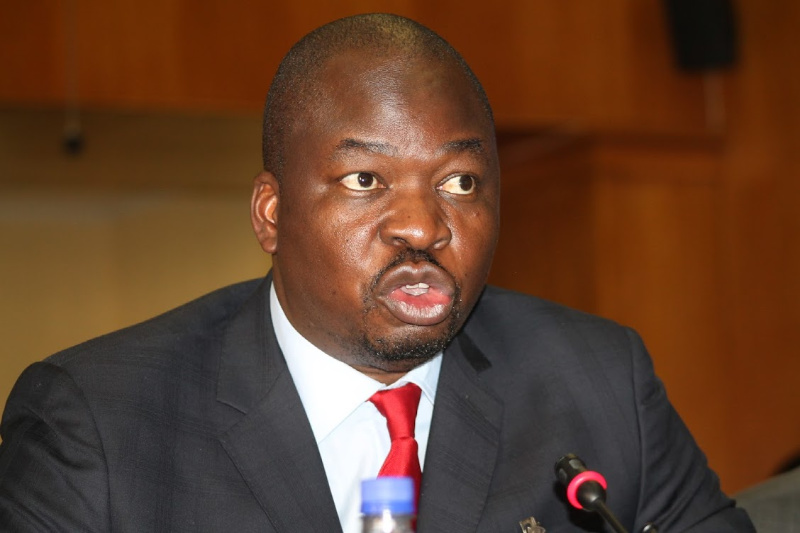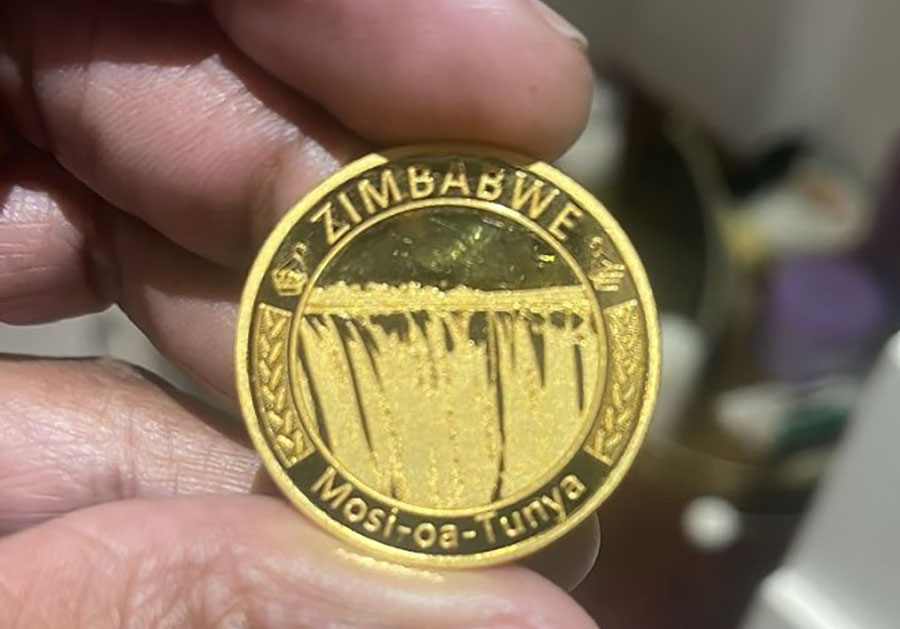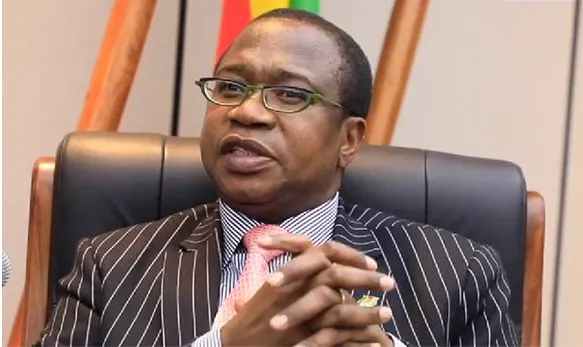
TINASHE KAIRIZA/SYDNEY KAWADZA TREASURY has blamed ministries, government departments and public procurement agencies for fuelling inflationary pressures and the currency turbulence rocking the economy through submitting “pay runs” from suppliers indexed on black market rates.
As a result, documents gleaned by this publication show that all ministries, departments and agencies have been directed to suspend all payments with various suppliers and review all running contracts as authorities battle to contain inflationary pressures and put a lid on currency volatilities haunting the Zimbabwean economy.
With government being the largest procuring entity, it is estimated that it pays ZW$50 billion (approximately US$110 million) to various suppliers of goods and service, who in turn offload the rapidly depreciating local currency on the black market in exchange for stable foreign currencies, thereby fuelling run-away inflation and price increases.
Zimbabwe’s inflation, the highest in Africa at the moment, peaked to 256% in July, coinciding with the introduction of the Mosi-oa-Tunya gold coin, which the government unveiled to give investors an alternative store of value.

The gold coin is meant to stabilise spiralling prices and the volatile exchange rate. In June, inflation also stood at triple digit figures of 191,6% during a period marked by a sharp increase in the prices of basic commodities. Through correspondence written by Treasury secretary George Guvamatanga on August 4 this year, all ministries, departments, and agencies were blamed for submitting “pay runs” for goods and services procured and pegged at black market rates. Such actions, the correspondence reads, were triggering inflationary pressures and creating excessive arbitrage opportunities on the parallel market.
Guvamatanga’s letter reads: “Treasury has noted with concern that line ministries, departments and agencies (MDAs) are submitting pay runs for the disbursement of cash for goods and services procured using parallel market rates.
“As you are aware, such pricing frameworks by the suppliers of goods and services, have not only been causing inflationary pressures, but also fuelling parallel market activities.”
The document titled, “Suspension of funding for payment runs submitted as at 31 July 2022 and review of existing procurement contracts,” was copied to Deputy Chief Secretary Martin Rushwaya, Auditor General (AG) Mildred Chiri, Clerk of Parliament Kennedy Chokuda and National Prosecuting Authority (NP) administration director A. Munowenyu.
- Chamisa under fire over US$120K donation
- Mavhunga puts DeMbare into Chibuku quarterfinals
- Pension funds bet on Cabora Bassa oilfields
- Councils defy govt fire tender directive
Keep Reading
As a result of the illegal activities by line ministries and government procuring entities, Guvamatanga’s letter, which was also copied to all ministerial permanent secretaries, the government has ended up paying steeply to various suppliers.
Subsequently, due to the extortionate tendencies by government departments to submit “pay runs” in black market indexed prices, line ministries were on the brink of exhausting their budget allocations, while triggering exchange rate tremors in the country’s fragile economy.
“This has resultantly caused instability in the foreign exchange rate market by unnecessary movements on the rate resulting in exorbitant prices being charged,” reads the letter.
“Furthermore, this has resulted in the erosion of MDAs appropriated budgets and hence, exerting pressure on Treasury in demanding more fiscal resources which are not aligned to revenue inflows, thereby creating an inherent fiscal risk of unsustainable budget overruns and budget deficits.”
Guvamatanga’s directive comes barely a fortnight after Finance minister Mthuli Ncube presented a ZW$929 billion (US$2 billion) supplementary budget with the bulk of budgetary votes channelled towards servicing the public service wage bill.

Factoring in the supplementary budget, this would bring the government’s expenditure for 2022 to ZW$1,9 trillion (US$4,1 billion).
Ncube, citing a wave of headwinds buffeting the economy such as skyrocketing inflation, exchange rate volatilities and supply chain disruptions also revised the 2022 Gross Domestic Product (GDP) growth margins to 4,6% from 5,5%.
The supplementary budget, translated to about US$2,1 billion at the official exchange rate of US$1:ZW$458 prevailing two weeks ago.
Relating to Guvamatanga’s directive, which he said Treasury was exercising in line with the powers it draws from the Public Finance Management Act, underscored that government departments should exercise frugality in utilising their allocated fiscal resources.
As a result, Treasury, with immediate effect, has suspended processing payments to public procuring entities.
Guvamatanga further wrote: “Therefore, in line with the Public Finance Management Act…which empowers Treasury to manage and control public resources, as well as determine the manner in which public resources are utilised, MDAs are being directed to rationalise their payment requests with a view to operating within the willing-buyer, willing-seller foreign exchange rate.
“In this regard, Treasury is immediately suspending all payments to MDAs while awaiting your submission of reports of findings of the due diligence exercise on all running and future contracts with special focus on pricing.”
“Going forward,” Guvamatanga informed the concerned government procuring departments, “you are required to seek Treasury approval on contract prices in order to ensure effective control in the utilisation of public resources as guided by the Public Finance Management Act (PFMA)”.
Sources close to the day-to-day financial running of government ministries this week told Zimbabwe Independent that in the wake of Guvamatanga’s directive, ministers and their secretaries were frantically “working around the clock” to comply, while also informing suppliers of the new procurement arrangements.
“When the directive was given, all ministers were basically communicating the import of Treasury’s directive to suppliers and all the procuring public entities under their ministries,” a source at one of the government ministries told this publication on condition of anonymity.
“In short, ministries are working flat out to satisfy the newly announced measures without disrupting government business.”
Guvamatanga indicated that payment requests should be thoroughly assessed by the relevant accounting officer to ensure the government gets value for money.
“In addition, all payment submitted by Treasury should have been reviewed and signed off by the Accounting Officer ensuring value for money in procurement and confirming that the pricing framework is in line with government policy,” Guvamatanga wrote.
The government’s procurement of goods and services is financed from public funds.
Such services include fuel, vehicles, catering, information communication technologies (ICTs), accommodation and travel and infrastructure development projects. The letter was also copied to the finance minister and his deputy, Clemence Chiduwa; Chief Secretary to President and Cabinet Misheck Sibanda; and acting chief director internal audit unit M. Mudzungayiri.
Guvamatanga also sent the letter to heads of all public commissions including the Zimbabwe Electoral Commission (Zec), Zimbabwe Media Commission (ZMC), Zimbabwe Lands Commission (ZLC), Zimbabwe Gender Commission (ZGC) and Zimbabwe Anti-Corruption Commission (Zacc).
The directive by Treasury comes at a time President Emmerson Mnangagwa’s administration has declared war on perceived saboteurs, including in the private sector, blamed for frustrating government’s efforts to address the country’s intractable economic crisis.











